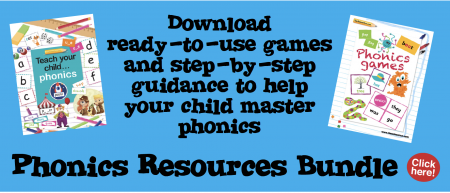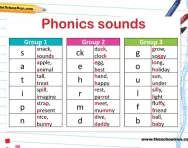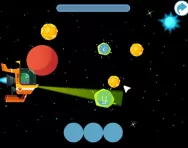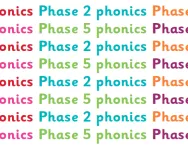TheSchoolRun.com closure date
As we informed you a few months ago, TheSchoolRun has had to make the difficult decision to close due to financial pressures and the company has now ceased trading. We had hoped to keep our content available through a partnership with another educational provider, but this provider has since withdrawn from the agreement.
As a result, we now have to permanently close TheSchoolRun.com. However, to give subscribers time to download any content they’d like to keep, we will keep the website open until 31st July 2025. After this date, the site will be taken down and there will be no further access to any resources. We strongly encourage you to download and save any resources you think you may want to use in the future.
In particular, we suggest downloading:
- Learning packs
- All the worksheets from the 11+ programme, if you are following this with your child
- Complete Learning Journey programmes (the packs below include all 40 worksheets for each programme)
You should already have received 16 primary school eBooks (worth £108.84) to download and keep. If you haven’t received these, please contact us at [email protected] before 31st July 2025, and we will send them to you.
We are very sorry that there is no way to continue offering access to resources and sincerely apologise for the inconvenience caused.
Year 1 phonics screening word check

Contents
What is the Year 1 Phonics Screening Check?
How do children complete the Year 1 Phonics Screening Check?
When is the Year 1 Phonics Screening Check?
Is the Phonics Screening Check compulsory?
What is the Y1 Phonics Screening Check?
The Phonics Screening Check is meant to show how well your child can use the phonics skills they’ve learned up to the end of Year 1, and to identify students who need extra phonics help. The Department for Education defines the checks as “short, light-touch assessments” that take about four to nine minutes to complete.
How do children complete the Phonics Screening Check?
The checks consist of 40 words and non-words that your child will be asked to read one-on-one with a teacher. Non-words (or nonsense words, or pseudo words) are a collection of letters that will follow phonics rules your child has been taught, but don’t mean anything – your child will need to read these with the correct sounds to show that they understand the phonics rules behind them.
The 40 words and non-words are divided into two sections – one with simple word structures of three or four letters, and one with more complex word structures of five or six letters. The teacher administering the check with your child will give them a few practice words to read first – including some non-words – so they understand more about what they have to do. Each of the non-words is presented with a picture of a monster / alien, as if the word were their name (and so your child doesn't think the word is a mistake because it doesn't make sense!).
You can download the Department for Education's official Year 1 Phonics screening check past paper from 2012, 2013, 2014, 2015, 2016, 2017, 2018, 2019, 2022 and 2023 to get an idea of what your child will be asked to do.


Complete 'at-home' phonics support kit
- Step-by-step phonics programme
- Your guide to phonics
- 10 practice tests
When does the Y1 Phonics screening check take place in 2024?
Does my child have to take it?
What will my child’s score mean?
Your child will be scored against a national standard, and the main result will be whether or not they fall below, within or above this standard.
In 2013, 2014, 2015, 2016, 2017, 2018 and 2019 the "pass threshold" was 32, which means children had to read at least 32 words out of 40 correctly. The threshold mark is communicated to schools at the end of June, after the test has been taken, so that teachers can mark the Check.
You will be told how your child did, but schools’ results will not be published. If your child’s score falls below the standard, they will be given extra phonics help and can re-take the Phonics Screening Check in Year 2.
How can I help my child prepare?
You can help your child prepare for their Phonics Screening Check by going over the phonics they’ve learned in Reception and Year 1. Read new books and stories with them where they will be introduced to new words that they’ll have to sound out, and review the phonics sounds and rules. You can download an interactive phonics sounds worksheet on TheSchoolRun to help with this.
We also offer free phonics worksheets to download, as well as subscriber packs (Fabulous phonics offers an overview and 50 worksheets; Phonics games is a collection of ten downloadable phonics board games) and practice tests to help your child get used to the check format.
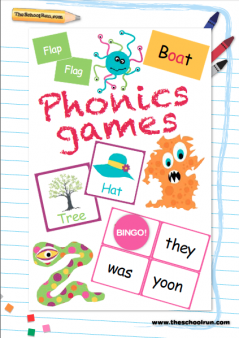

Ask your teacher for advice on how your child is doing in phonics, and whether there are certain areas you should focus on at home. Keep in mind that if your child really struggles with phonics, the checks ought to enable them to get the extra help they need at school.
For more advice and information look through our phonics advice for parents: we suggest 10 ways to boost your child's phonics confidence, plus the best phonics learning tools and phonics apps for kids.
Download a free parents' guide to the Y1 Phonics Screening Check
Is your child in Year 1? Print out TheSchoolRun's guide to the Y1 Phonics Screening Check for parents.

